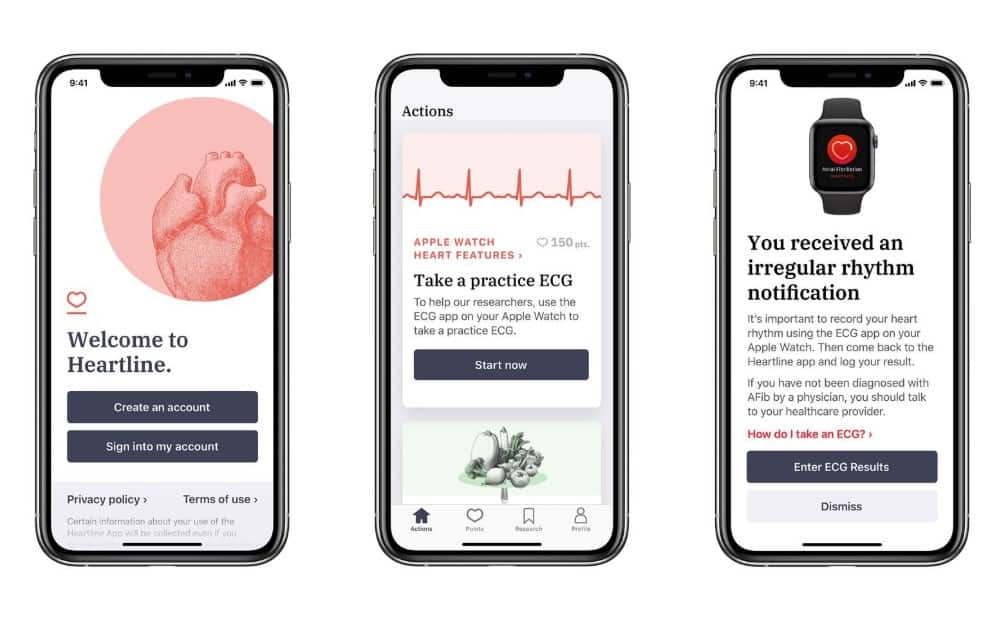
Over the past several years, Apple has made efforts to expand the health-related features of the iPhone and Apple Watch. Apps and features like fall detection and high heart rate monitoring provide helpful insights, especially for senior citizens. Last year, Johnson & Johnson announced a study that would explore how these capabilities could reduce the risk of stroke through early detection of irregular heart rhythms. Enrollment in the clinical trial — called Heartline — is now open for US residents who are 65 or older, have Original Medicare, own an iPhone 6s or newer and allow access to their Medicare claims data.
The study hinges on the early detection of atrial fibrillation (AFib), which is an irregular heart rhythm that causes poor blood flow and is a leading cause of stroke. While the link between atrial fibrillation and stroke is thoroughly understood, AFib has very few warning signs, making it difficult to diagnose until a stroke occurs. Johnson & Johnson and Apple are hoping that apps and the Apple Watch’s electrocardiogram (ECG) features will help detect AFib before a stroke occurs. This trial follows a Stanford study that found that the Apple Watch’s irregular heart rate monitoring features are accurate enough to use in a medical setting.
Since this is a virtual trial, participants don’t have to travel to a clinical trial site — they can partake remotely via a proprietary app. The Heartline study could help prevent strokes and deaths — AFib leads to 158,000 deaths per year — and could lead the way toward a new approach to clinical trials that leverage greater sample sizes and more consistent reporting. Those interested in participating can sign up at Heartline.com.
























